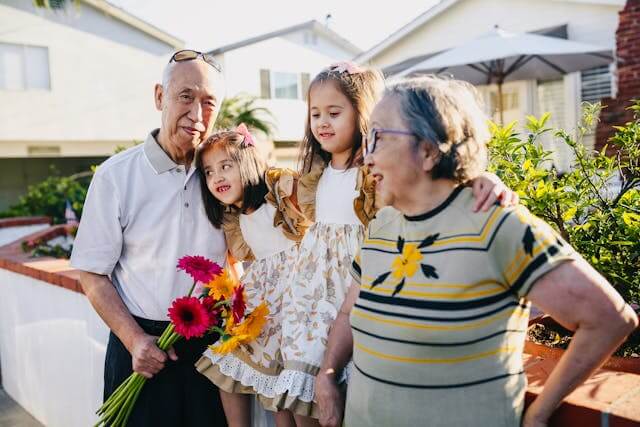Grandparents often play a significant role in a child’s development and across her adult lifespan. Many children who’ve grown up with active and involved grandparents report how precious and important those relationships have been in shaping their values and creating a treasure chest of beautiful memories. Unfortunately, however, rifts among grandparents and their own adult children sometimes interrupt the grandparents’ ability to cultivate a loving connection with a grandchild, and the grandchild loses out on the potential of a close connection with their papa or Nana.
Underlying reasons for potential alienation
Take Joe and Helen, for example, the parents of Jodi and the grandparents of Shane and Heidi (now adults). While Jodi loved her parents, she had experienced them as overbearing and far too strict, rarely ever having expressed their love for her or any validation. As an adult, she distanced herself from them, never having really tried to heal the wounds within herself, let alone with her parents. She kind of put things in a box and carried on.
While raising her own children with her husband, she maintained this distance out of fear that her parents would behave similarly toward her children. Joe and Helen were perplexed by the estrangement and deeply saddened that they were not invited to participate much in their grandkids’ lives. Mind you, they didn’t do much to engage Jodi in any sort of healing process either, but rather sulked in silence. As a result, Shane and Heidi missed out on what might’ve been bonus love in their lives.
As adults, both grandchildren became curious about their still-living grandparents, and they actively sought out an exploration of whether the blueprint of their characters, as described by their mother, matched their own experience of Joe and Helen.
To their welcome surprise, they found the grandparents to be much softer and far more endearing than their mother had portrayed them. At first, they were quite angry with their mom and felt cheated. But over time, they were able to sort out with her why she felt the way she did and also be able to give their grandparents a chance to become involved in a positive way in their lives.
What often seems to be true is that grandparents show up as much better nurturers than they may have been to their own children possibly because they don’t have the same sense of responsibility and duty they had as parents of their youth.
The above scenario described happened to be a good success story, but that’s not always the case for many, often because there isn’t much guidance out there on how to heal intergenerational wounds.
If you have been alienated from your grandchildren and/or embroiled in conflict with them or with your own child, try the following tips:
- Take a step back and examine the ways in which you parented your children. Highlight both the positives and the negatives.
- Approach your adult child with the love and compassion in your heart. Then ask questions about what went wrong and what you can do to help mend and repair the relationship. For instance, say something like: “I don’t like the distance between us and I know I have a big role in that so let me please know how I can help remedy the discord and heal our relationship. “
- If you believe your relationship with your own child is a lost cause, and your grandchildren are adults – try reaching out to them, offering an olive branch and a listening ear.
- Be self-accountable without blame or shame and practice acceptance, avoiding defensiveness at all costs.
- Propose a healing plan. If this does not come easily, then seek professional guidance.
- Approach with patience and humility. Your grandchildren may have to overcome a litany of internalized messaging they’ve received along their development. It’s your job to show up consistently an open heartedly to help wither away any negative perceptions.
I totally understand. This is a tall order and requires a great deal of stamina. But if there is a chance at creating a healing tree, why not take it? – The reward might just be
well worth your time in the long run.
ABOUT THE AUTHOR
Meet “Dr. Debra” Mandel, Ph.D.: Nationally renowned, media-savvy, psychologist and author of five published books including her most recent, Sassy and Rude: Her New Attitude, “Dr. Debra” Mandel, aka The Love Warrior has over thirty years of experience specializing in helping individuals, couples, and families learn how to thrive! She has experience with relationship issues, addictions, eating disorders, depression, anxiety, post-traumatic stress, and abuse from childhood. Dr. Debra adapts her style to meet the needs of her clients—understanding that each person requires individualized care!
She currently practices via Telehealth from her home in Thousand Oaks, California. For more details on her practice and products, please visit her at www.drdebraonline.com.
Cover Photo by RDNE Stock project

